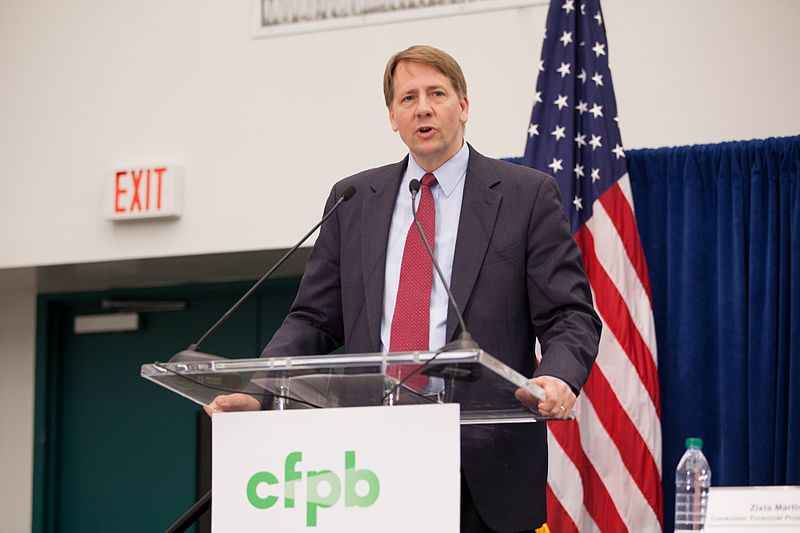
The director of the country’s most powerful consumer advocacy organization came out in defense of the customer’s right to legal recourse in The New York Times.
Richard Cordray, Consumer Financial Protection Bureau director, authored a column posted August 22, 2017 entitled Let Consumers Sue Companies supporting the consumer’s right seek redress in court.
“When a data breach at Home Depot in 2014 led to losses for banks nationwide, a group of banks filed a class-action lawsuit seeking compensation,” Cordray said. “Companies have the choice of taking legal action together. Yet consumers are frequently blocked from exercising the same legal right when they believe that companies have wronged them.”
Blocking these consumers are mandatory arbitration clauses. Many companies, including auto manufacturers, force consumers go through arbitration as an alternative to court proceedings. Companies tout arbitration’s faster turnaround time low cost and less formal process as advantages over the court system. It is often questionable whether arbitration is, in fact, less expensive. Third-party arbitrators often side with the manufacturer and, depending on what state in which the case is filed, a consumer may not recover attorney’s fees via the arbitration process.
Cordray states his bureau was commissioned in 2010 to study mandatory arbitration and write rules governing it. They proposed a rule allowing more customers to participate in a class-action lawsuit – a rule House Republicans moved to block in July 2017.
“Our rule does not ban individual arbitration, as our opponents falsely claim,” Cordray said. “It simply ensures that consumers have the option of joining together to sue companies. Companies and consumers can still use arbitration to resolve their differences, but companies cannot unilaterally block group lawsuits.”
Cordray addressed several common pro-business arguments against the rule, saying lawyers collect a much smaller portion of judgements compared with consumers.
“For every $10 that a company pays out for wrongdoing, we found about $8 goes to consumers and $2 goes to pay legal costs,” Cordray wrote. “In any event, banks choose to hire lawyers to file class-action lawsuits, and ordinary people deserve to make the same choice.”
The CFPB’s director said the rule wouldn’t harm the banking industry as a whole, costing $1 billion compared to the $171 billion profit it made last year.
“In truth, by blocking group lawsuits, mandatory arbitration clauses eliminate a powerful means to get justice when a little harm happens to a lot of people,” Cordray said. “It is the height of hypocrisy for companies to say they’re helping consumers by closing off the very same legal option they use when they’ve been wronged.”
Dallas-based attorney Allen Stewart agrees with Cordray, saying mandatory arbitration clauses are never built with the consumer in mind but actually constitute additional roadblocks.
“They are essentially a way to keep jurors from hearing about corporate misdeeds and equitably judging such conduct,” Stewart said. “People should have the right to go straight to the courthouse. It is cost efficient; in fact corporations do it all the time.”
Please consider adding lemonlawusa.org to your bookmarks or sign up for their free subscription service allowing you to keep up with the latest information about automotive recalls and warranty information.
